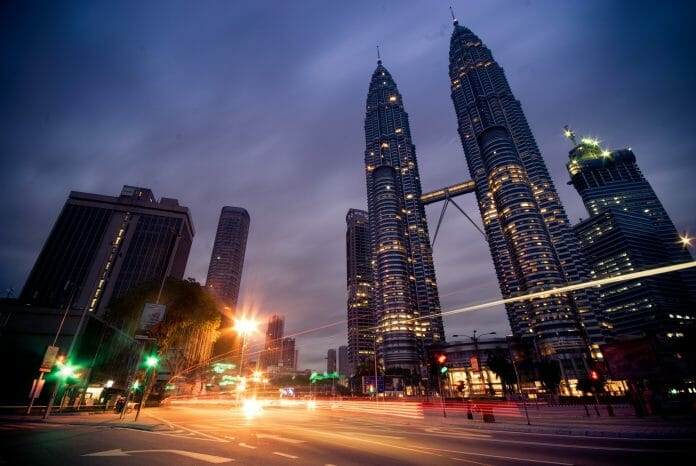All three locations in Malaysia – Kuala Lumpur, George Town and Johor Bahru – have risen in global liveability rankings for expatriates from East Asia, as revealed by the latest Location Ratings survey published by global mobility expert, ECA International. Kuala Lumpur climbed two spots to the 118th position, while George Town and Johor Bahru both rose by one spot to claim the 122nd and 125th positions respectively. Malaysia’s rise in rankings were driven largely by the relaxation of Covid-19 restrictions.
“A location’s position in our rankings is influenced by what happens in that location as well as other locations we research,” advised Lee Quane, Regional Director – Asia at ECA International. “Malaysia’s relaxation of Covid-19 restrictions was the main driver of improved liveability scores and rankings across all three locations in the past year. By reopening its economy and adopting a policy of living with the Covid-19 virus sooner than other locations in the region, living conditions have returned to pre-pandemic levels sooner, making Malaysian locations relatively more attractive in comparison to locations in mainland China, for example, who have kept restrictions in place for longer.”
ECA’s Location Ratings system objectively evaluates a host of factors to form an assessment of the overall quality of living in over 500 locations worldwide. Factors assessed include climate; availability of health services; housing and utilities; natural phenomena; isolation; access to a social network and leisure facilities; infrastructure; personal safety; political tensions; and air quality.
Asia Highlights
ASEAN locations generally improved in scores and rankings this year, owing to the relaxation of Covid-19 restrictions. Singapore retains its top position while locations across Indonesia and the Philippines saw a climb in their rankings. Yangon, Myanmar, was the only ASEAN location which saw a fall in its ranking owing to the continued deterioration of security circumstances in the country.
“Singapore relaxed social distancing restrictions earlier than other locations which facilitated a return to pre-pandemic norms, allowing the country to retain its top position in our rankings and increasing its lead over other locations in terms of liveability,” said Quane. “Furthermore, the gap in liveability between Singapore and locations such as Hong Kong and Shanghai – both of which maintained or even enhanced Covid-19 related restrictions in 2022 – widened during the year, making it an even more compelling destination versus other locations in the region competing for international talent.”
“Nonetheless, the impact of improvements in ASEAN remain largely limited as the gap between Singapore and Bangkok – the second-highest location ranked in ASEAN but ranked 115th globally – indicates a wide disparity within the region that must be narrowed before other ASEAN locations can offer similar living standards to Singapore,” said Quane.
Cities in Australia saw also major improvements in their liveability scores, while Auckland, New Zealand, was the biggest riser, climbing up 20 places to become the 4th most liveable location in the world for East Asian expatriates.
Elsewhere, Hong Kong’s liveability ranking has fallen 15 places to 92nd this past year. This decline is largely due to the impact of Covid-19 restrictions in 2022 and changes in its political environment.
“Hong Kong’s maintenance of its Covid-19 mitigation measures this past year stood in contrast against many of its peers, both regionally and globally,” Quane observed. “Continued quarantine restrictions, the limitation of access to recreational activities and other social distancing measures persisted throughout 2022, which put Hong Kong in a less favourable position compared to other locations. Furthermore, recent legislative council and elections for Hong Kong’s Chief Executive also signalled changes in its political environment, which contributed to the decline in its liveability score and ranking.”
“Likewise, cities in mainland China have all fallen in our rankings due exclusively to the impact of China’s zero-Covid strategy that was maintained throughout most of 2022,” explained Quane.









